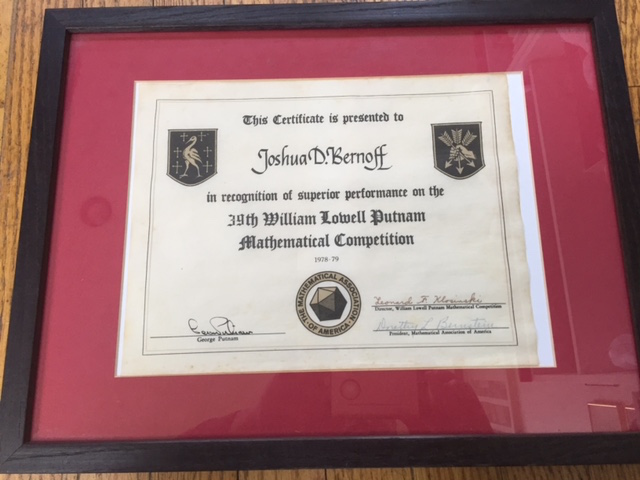Overqualified
What do you do when you have too much talent for your job? If you’re overqualified, you can pretend to be stupider than you are. Or you can apply your talents to whatever you’re doing, and find out you’re not overqualified after all.

I always had certain talents. (Let’s be frank: false modesty is not one of them.) In my third year of college, I ranked near the top on nationwide math tests and earned a National Science Foundation fellowship to MIT. My writing teachers were upset that I was going into math, because they thought I should be a writer.
So when I left graduate school to become a technical writer on a math-based software product, I was overqualified — the math was way below my abilities. Of course, I had never worked in an office before, so I had to learn that.
And I was way too good a writer for this job . . . or thought I was, until another writer took me aside and pointed out how my bad habits were making things harder to understand. So I had to learn to fix that.
In my next job at another software startup, I had a team of writers to manage. I could write a lot of the stuff better than they could, so what could I learn from them? I did need to learn to manage people. And I ended up learning a lot about software support and quality assurance (bug-finding) from the people who did those jobs.
At my next job, I was the first employee the founders hired. Of course I wrote the manuals — that was easy. And I ran technical support. And I ran quality assurance. What I didn’t know was how a startup business works. So I learned that, and I ended up talking to investors, customers, and founders. As it turned out, I wasn’t overqualified for that.
I made a mistake on the next job — a startup publishing company that did college textbooks about business software. It didn’t use my math. It didn’t use my writing — they had authors and editors for that. Nope, my job, as it turned out, was to get pages laid out and books and software manufactured. I felt overqualified for that — it was a job I always counted on other people to do.
But rather than get bored, I tried to figure out if there was a better way to do it. I learned to work with desktop publishing software. And after a little while, my team and I invented a process that allowed us to publish complete books 6 weeks after the manuscript was done. Nobody else in the textbook business could do that (and 20 years later, they still can’t). We beat our competitors to market by 6 months. That was fun to build. Turns out there was a challenge after all. And that job got me to learn CD-ROM development, which got me into Forrester Research. So maybe it wasn’t a mistake.
After that, I learned to be an analyst, learned the TV industry, learned about social media, learned to develop ideas, learned to write books. Once it got boring, I learned something new.
If you’re feeling overqualified, you can sit and stew about all that wasted talent. Or you can apply that talent to making what you do, better. People will notice. You’ll get to do something better. That’s a lot more fun than sitting around feeling entitled.
[tweetthis]In every job…there is an element of fun. Find the fun and, snap, the job’s a game. – Mary Poppins[/tweetthis]
Or, you can be like my buddy whose accounting job was so boring he drank himself into oblivion every night just so it would be a challenge to get through the next day without puking all over his co-workers.
I needed to read this today. Thank you.
I believe you meant to say that you have always had “a very particular set of skills”…
That thought had occurred to me as I wrote those words . . . being able to do differential equations isn’t much help in dealing with the criminal underworld.
You should consider that the full quote is entirely appropriate to your blog:
“But what I do have are a very particular set of skills, skills I have acquired over a very long career. Skills that make me a nightmare for [purveyors of bullshit] like you.”
You had me at hello…then cast me into dissonance with the Mary Poppins clip!